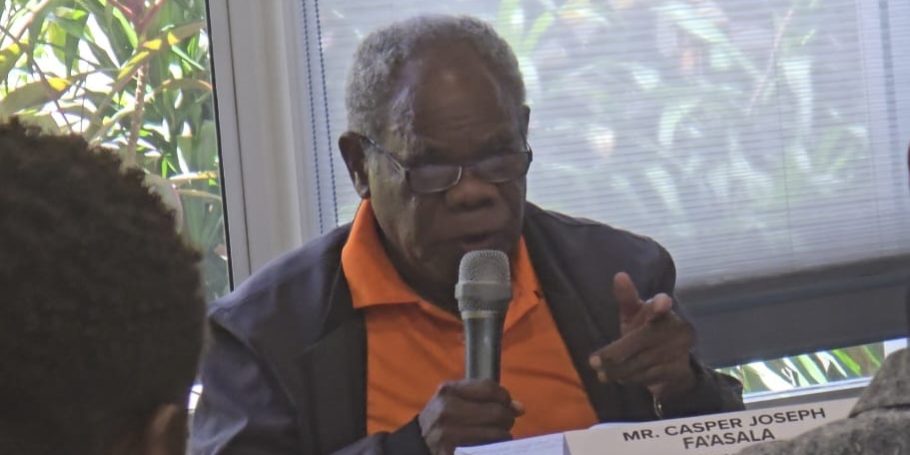Land dispute remains a huge obstacle to national development especially in the energy sector.
Thats according to Casper Fa’asala, Chief Executive Officer (CEO) of the National Disability Forum of Solomon Islands (NDFSI).
He was speaking during a panel discussion on “Energy and the Future,” held on Friday at the Heritage Park Hotel in Honiara.
The panel was hosted by the Ministry of Mines, Energy and Rural Electrification (MMERE) in partnership with the United Nations Development Programme (UNDP).
It brought together government officials, development partners, utilities, and civil society representatives to discuss pathways to secure, affordable and sustainable electricity.
In his presentation, Fa’asala argued that many disputes arise from a widespread misunderstanding between land ownership and land rights.
This confusion, he said, continues to delay vital development projects, particularly those involving natural resources.
He highlighted the untapped potential of hydropower, noting that investigations dating back to the 1960s identified several promising rivers for energy generation, including the Mataniko and Tenaru waterfalls.
“Solomon Islands is a very rich country of rivers, streams and a wide ocean which has never been utilized for energy,” he said.
“However, there are land disputes on the location of these rivers.”
Fa’asala also emphasized that improved energy access is critical for people with disabilities, enabling economic participation through tools such as electric sewing machines and woodworking equipment.
He referenced a proposed disaster-warning system that would combine visual flag signals with solar-powered audio alerts to assist both deaf and blind communities.
“In Solomon Islands, as far as disabilities would know, we are still behind our neighboring countries in the Pacific, such as Fiji, PNG, Vanuatu, Samoa and Tonga,” he said.
“We are really behind in terms of developing our solar systems and lighting.”
Fa’asala urged Solomon Islanders to reconsider their approach to land, “We need to go back and ask God: let’s define land rights more than land ownership and expand development beyond,” he said.
“We are too greedy to call it land ownership. We are not the land owners. God owns the land and not us.”
He added that recognizing shared rights to land and natural resources would help unlock the country’s development potential.
“We all have the right, and therefore, if we use the right that is given to us in utilizing our resources, we will already be rich,” he said. “In land disputes, we claim rivers. Where do you get the river from?”
Fa’asala concluded that revisiting past hydropower investigations and addressing land-related conflicts are essential steps if Solomon Islanders are to advance future energy projects.
By AGNES MENANOPO
Solomon Star, Honiara









